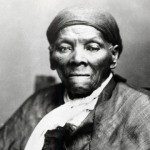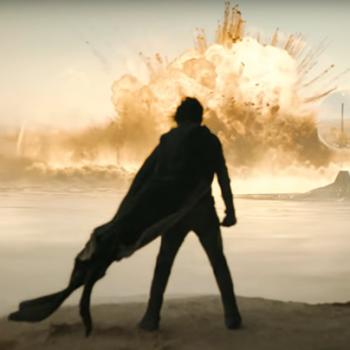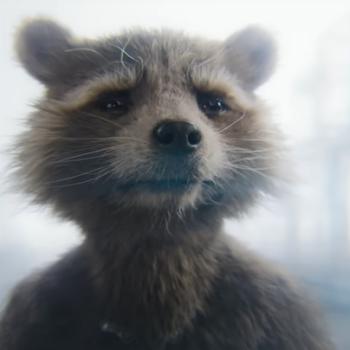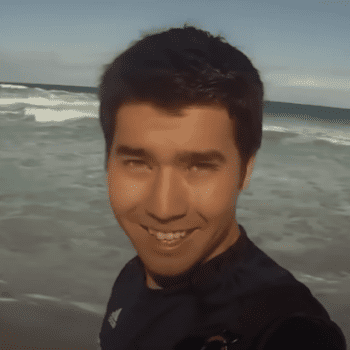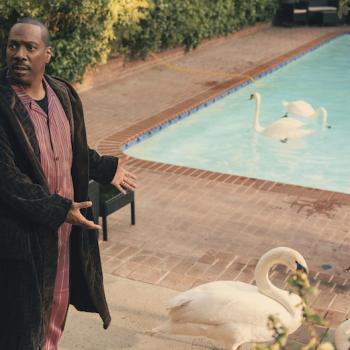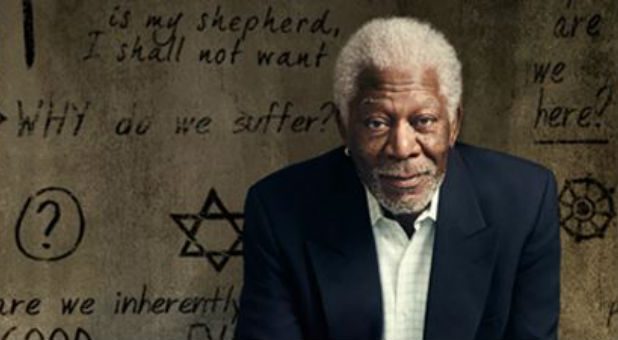
In National Geographic’s April 24 episode of The Story of God, “Creation,” host Morgan Freeman explores the supposed divide between faith and science—and gives us a hint of one of the reasons why, perhaps, he drifted away from his own traditional Christian upbringing.
Freeman goes back to his old church in Mississippi and shares that he found Christianity’s own creation story to be a “profound mystery.” He stresses the apparent disparity between the Big Bang Theory—how most scientists currently think the universe was created—and the Genesis creation stories. And he asks, “Can science and religion agree on creation?”
I believe the answer to be yes. In fact, I don’t think there’s any real disagreement at all. And let me explain why not with a story of my own.
This weekend, I found a batch of chocolate chip cookies cooling in the kitchen. I was pleased at this little act of creation, being partial to warm chocolate chip cookies. But I had to ask myself: How did these cookies get here?
There are scientific answers to that question: The biology of how the cocoa and sugar were grown over time, the chemistry of how these disparate elements bonded together under the process of mixing and heat; how physics and mechanics pushed the dough into shape and propelled them into the oven.
But there’s also a deeply personal answer: My daughter made ‘em.
These answers do not conflict. They are both true. One is not more true than the other.
I think the same can be said of creation as a whole. Science is the oven, if you will, in which the physical universe was baked. But I don’t believe that eliminates the possibility—indeed, the necessity, in my opinion—of a baker.
Now, it’s not particularly important to my faith as to whether the creation stories of Genesis are scientifically factual or not. I believe them to be true, but whether that truth is literal or metaphorical is not my fight. But for me, there is ultimately no tension between science and faith—not if my God is real and my faith is true. If God exists, He’s certainly not pacing up and down the heavens cursing Charles Darwin.
In those moments when faith and science seem to clash, I believe it’s due to the limitations of our own minds: We misunderstand the nature of God, the nature of the universe or, very likely, both. And even though we’re always learning and discovering new things about the world around us and the One who created it, I doubt we’ll ever truly know either—not in this lifetime. Our understanding of science, in particular, is always changing as we learn more.
Take, for instance, the Big Bang theory at the center of the episode. It wasn’t so long ago that the theory would’ve been considered, by many scientists, heretical. Before it came in vogue, most scientists believed that the universe was infinitely old. There was no moment of creation, these learned men said: What we see was always there. (After all, they mused, who would’ve created it?) The Big Bang—the idea that the universe began at a moment in time in a massive, mysterious explosion of matter—resonates deeply with me as a Christian. For me, it dovetails nicely with the beautiful poetry of Genesis:
“Now the earth was formless and empty, darkness was over the surface of the deep, and the Spirit of God was hovering over the waters. And God said, ‘Let there be light,’ and there was light.”
As Freeman says, “One moment there was nothing, the next, everything.” He could be talking Genesis. He could be referring to the Big Bang. To me, they’re both telling, essentially, the same story. And even if science can someday definitively answer the what and where and how of creation, only religion dares touch the why.



